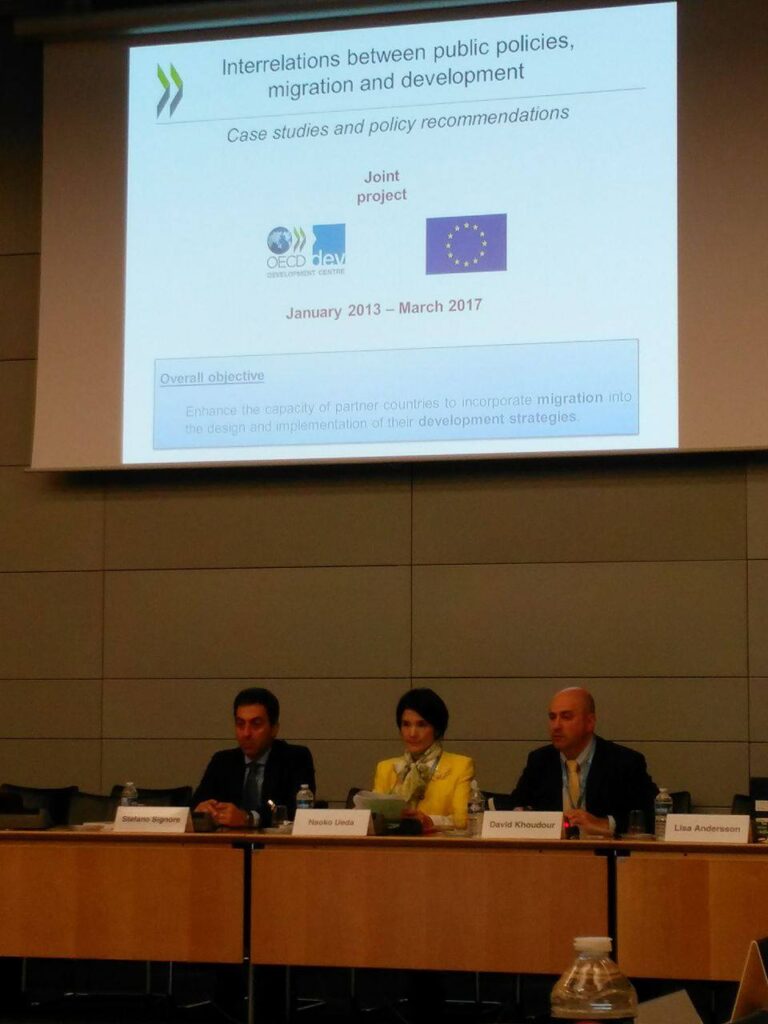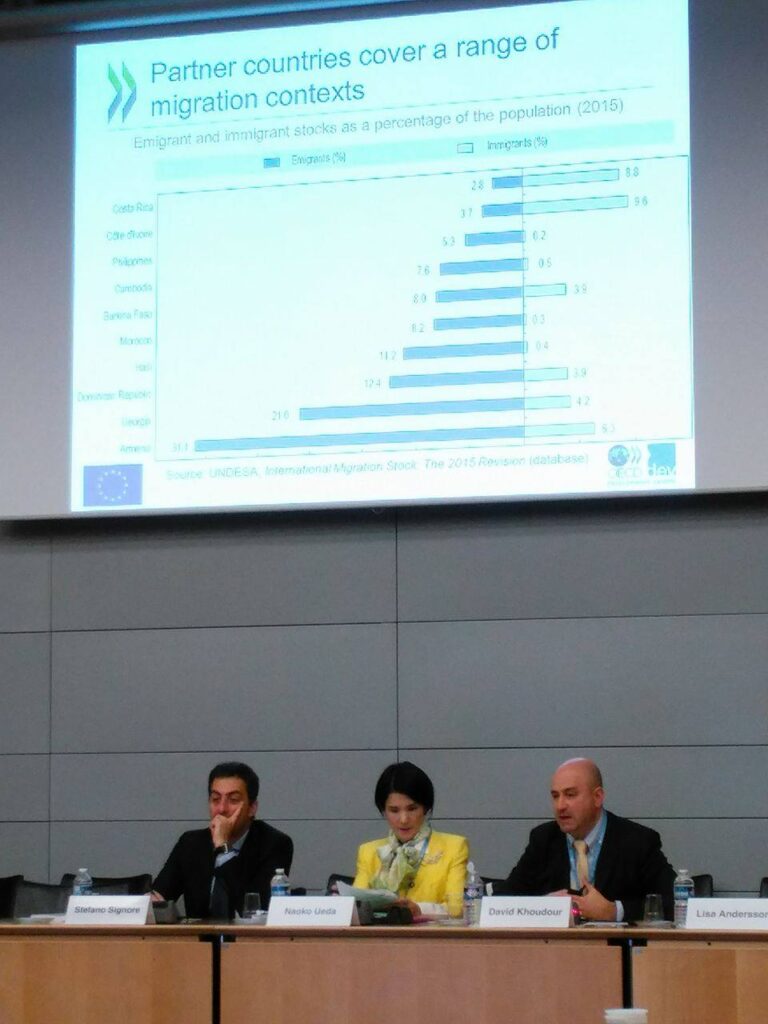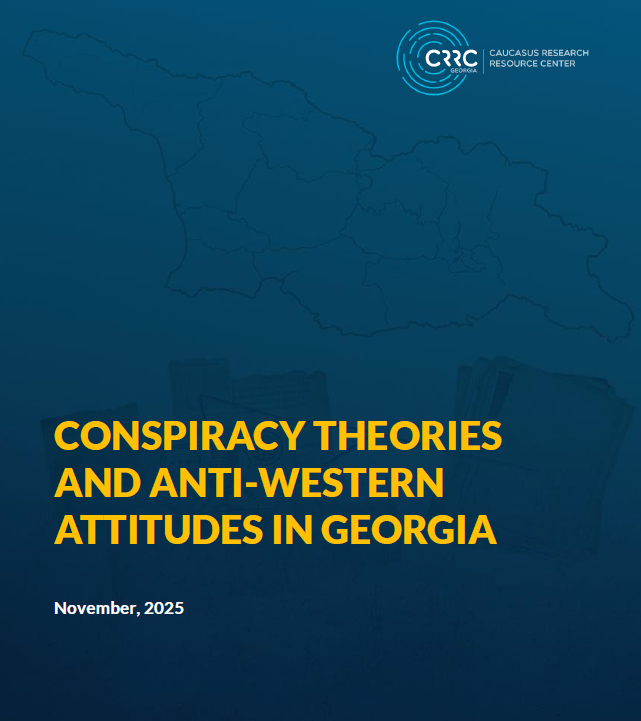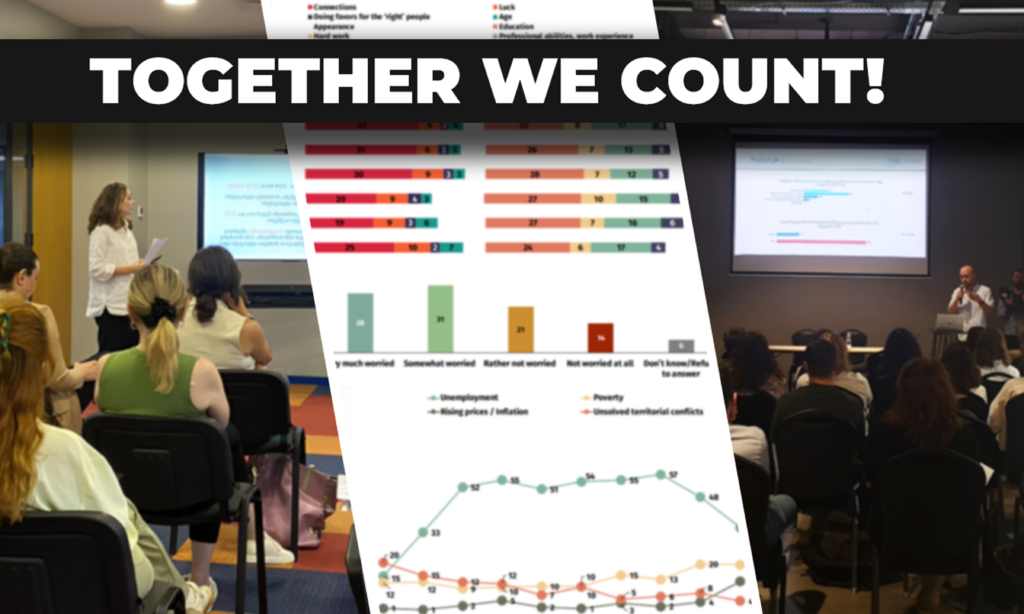On October 13-14, 2016 OECD Development Centre and the European Commission organized a conference on “Interrelations between public policies, migration and development” in the French capital, Paris.
CRRC-Georgia’s Research Director, Ms. Tina Zurabishvili attended the conference on behalf of the research institution, which implemented the study on Interrelations Between Public Policies, Migration and Development at the national level. A comparative project in 10 countries worldwide, investigates the relationships between international migration and economic development of the sending communities. Other countries involved in the project include: Armenia, Burkina Faso, Cambodia, Costa Rica, Côte d’Ivoire, Dominican Republic, Haiti, Morocco and the Philippines. The project aims at understanding how international migration affects non-migration related public policies, and conversely, how these affect migration. It provides policy makers with evidence on the way migration influences specific sectors – labour market, agriculture, education, investment and financial services, and social protection and health – and, in turn, how sectoral policies affect migration. The report addresses four dimensions of the migration cycle: emigration, remittances, return and immigration.
Mr. Alexander Baramidze, First Deputy Minister of Justice of Georgia participated in the high-level panel on migration and development, where the members of the panel shared their policy experiences and discussed good practices to enhance the positive contribution of migration to development. Other members included the Minister in Charge of Moroccans Living Abroad and Migration Affairs, Secretary of State of Ministry of Interior of Cambodia, Minister of Planning and Development of Côte d’Ivoire, Vice Minister of Economy, Planning and Development of the Dominican Republic, and Burkinabè Amabassador to France.
The results of the empirical work confirm that even though migration contributes to the development of countries of origin and destination alike, most countries do not fully exploit its potential. One explanation is that policy makers do not sufficiently take migration into account in their respective policy areas. To enhance the contribution of migration to development, home and host countries therefore need to adopt a more coherent policy agenda to better integrate migration into development strategies, improve co-ordination mechanisms and strengthen international co-operation. The event was the opportunity to share and discuss the findings and policy recommendations of the project. It also served as a platform for a high-level dialogue between policy makers and representatives from academia, civil society and multilateral organisations.
More information on the project can be found at: http://www.oecd.org/dev/migration-development/ippmd.htm









